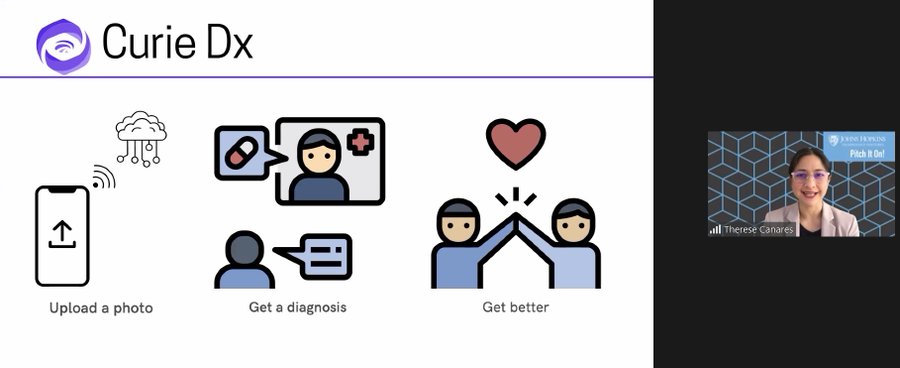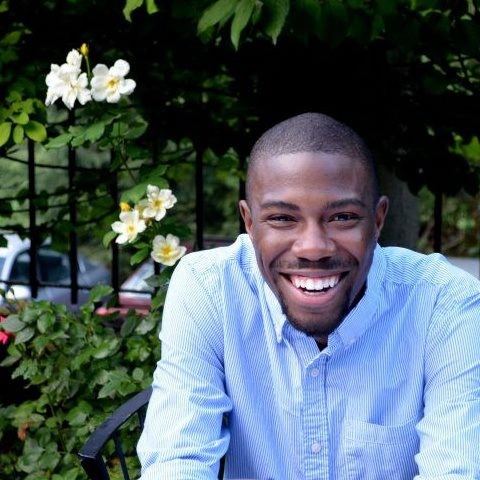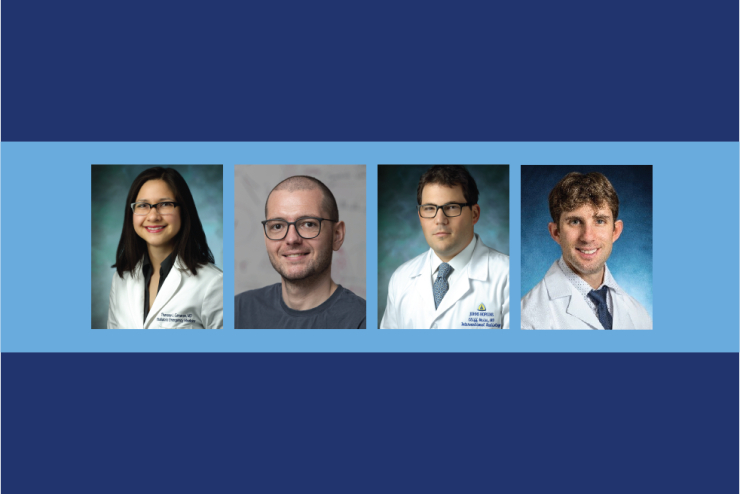With the Bisciotti Foundation Translational Fund, John Hopkins University School of Medicine is bringing seed funding to three teams of researchers creating innovative medical devices.
Each of these devices, which are being developed by Hopkins professors and fellows, aim to dramatically decrease costs on hospitals and improve patient care by taking anesthesia out of the equation. Recipients were awarded between $25,000 and $100,000 to conduct their work during a period of up to nine months.
Of the 14 applications submitted for funding, only five finalists were chosen to present their work in late January to an external panel of researchers, scientists and investors. Of those five, only the three below were chosen.
“Thanks to the generosity of the Bisciotti Foundation, the investment committee was able to fund three projects that could have a meaningful impact on clinical practice and patient care,” said Brian Stansky, director of Johns Hopkins Technology Ventures’ (JHTV) FastForward accelerator, which helps university founders commercialize their technologies, in a statement. “We are excited about these opportunities and look forward to working with the faculty members on both their funded projects and longer-term commercialization efforts.”
Have an idea for an innovative technology and looking for similar assistance within the Johns Hopkins network? Apps are open through early April for the Louis B. Thalheimer Fund for Translational Research fund, which offers a same amount of $25,000 to $100,000 per project over nine months.
Meet the three winners of the award:
AI for strep throat screenings
Hopkins assistant professor of pediatrics Therese Canares is the founder of 2022 RealLIST Startups honorable mention CurieDx. The winner of JHTV’s Pitch It On Competition makes virtual diagnosis tech using AI and a phone’s camera to provide an “instant diagnosis” of common diseases.
The pitch for the Bisciotti Foundation Translational Fund focused on refining the AI algorithm’s ability to distinguish strep from a regular sore throat, while attempting to to minimize bias by accounting for race, sex, ethnicity and age. Canares and assistant professor of computer science Mathias Unberath will use the funding to improve the technology’s accuracy and develop a prototype of the patient-user interface.

Dr. Therese Canares pitches CurieDx during JHTV’s Pitch It On Competition in October 2021. (Photo via Twitter)
Anesthesia-free ultrasounds
Ethan Tumarkin, a Johns Hopkins Heart and Vascular Institute fellow, is working on a device that gives an ultrasound of the heart without requiring anesthesia. The typical heart ultrasound sends a probe down the esophagus and does require anesthesia, which opens up complications due to possible reactions to the anesthetic drugs. Tumarkin instead wants to send the probe through the nose. He theorizes this change will increase the procedure’s availability and decrease the cost.
With the funding, Tumarkin and his research partner David Armstrong, a clinical cardiovascular fellow at Vanderbilt University Medical Center, are pursuing patents for their technology, as they have performed proof-of-concept experiments and developed prototypes.
At-home feeding tube replacements
Clifford Weiss, medical director for the Johns Hopkins Center for Bioengineering Innovation and Design, is creating a feeding tube that can be replaced at home instead of the hospital. The innovation is a device with a “durable outer sheath and replaceable inner feeding tube.” As with the other awarded devices, replacement would not require anesthesia.
Weiss is developing the device along with radiology professor Christopher Bailey and medical student and biomedical engineer Aryaman Gupta. He plans for the funding is to develop a prototype and validate the technology as the team begins the long process of achieving FDA approval.
Donte Kirby is a 2020-2022 corps member for Report for America, an initiative of The Groundtruth Project that pairs young journalists with local newsrooms. This position is supported by the Robert W. Deutsch Foundation.Before you go...
Please consider supporting Technical.ly to keep our independent journalism strong. Unlike most business-focused media outlets, we don’t have a paywall. Instead, we count on your personal and organizational support.
Join our growing Slack community
Join 5,000 tech professionals and entrepreneurs in our community Slack today!

The person charged in the UnitedHealthcare CEO shooting had a ton of tech connections

From rejection to innovation: How I built a tool to beat AI hiring algorithms at their own game

Where are the country’s most vibrant tech and startup communities?


